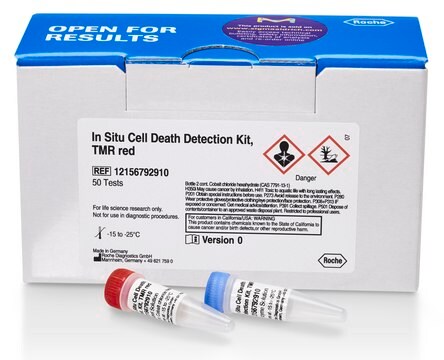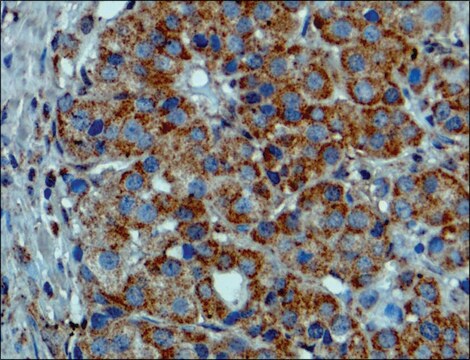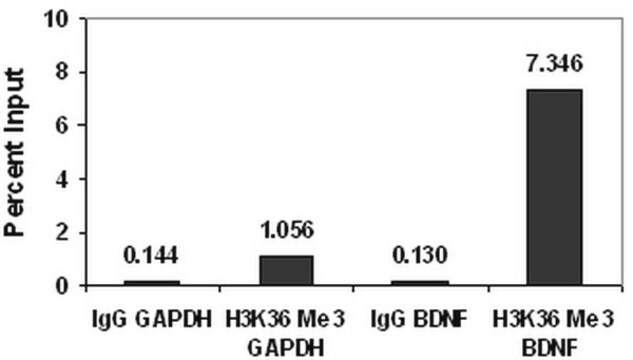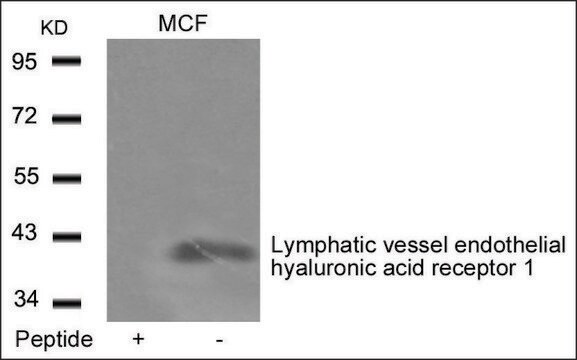MABS1929
Anti-hLYVE-1 Antibody, clone 8C
clone 8C, from mouse
Synonym(s):
Lymphatic vessel endothelial hyaluronic acid receptor 1, Cell surface retention sequence-binding protein 1, CRSBP-1, Extracellular link domain-containing protein 1, Hyaluronic acid receptor
About This Item
Recommended Products
biological source
mouse
Quality Level
antibody form
purified immunoglobulin
antibody product type
primary antibodies
clone
8C, monoclonal
species reactivity
human
packaging
antibody small pack of 25 μg
technique(s)
flow cytometry: suitable
immunocytochemistry: suitable
western blot: suitable
isotype
IgG1κ
NCBI accession no.
UniProt accession no.
shipped in
ambient
target post-translational modification
unmodified
Gene Information
human ... LYVE1(10894)
Related Categories
General description
Specificity
Immunogen
Application
Western Blotting Analysis: A representative lot detected hLYVE-1 in Western Blotting applications (Banerji, S., et. al. (1999). J Cell Biol. 144(4):789-801; Banerji, S., et. al. (2016). J Biol Chem. 291(48):25004-25018).
Flow Cytometry Analysis: A representative lot detected hLYVE-1 in Flow Cytometry applications (Lawrance, W., et. al. (2016). J Biol Chem. hLYVE-1; Banerji, S., et. al. (2016). J Biol Chem. 291(48):25004-25018).
Quality
Western Blotting Analysis: 2 ug/mL of this antibody detected LYVE1 (Lymphatic vessel endothelial hyaluronic acid receptor 1) in lysate from wild-type and LYVE transfected HEK293T cells.
Target description
Physical form
Other Notes
Not finding the right product?
Try our Product Selector Tool.
Storage Class Code
12 - Non Combustible Liquids
WGK
WGK 1
Flash Point(F)
Not applicable
Flash Point(C)
Not applicable
Certificates of Analysis (COA)
Search for Certificates of Analysis (COA) by entering the products Lot/Batch Number. Lot and Batch Numbers can be found on a product’s label following the words ‘Lot’ or ‘Batch’.
Already Own This Product?
Find documentation for the products that you have recently purchased in the Document Library.
Our team of scientists has experience in all areas of research including Life Science, Material Science, Chemical Synthesis, Chromatography, Analytical and many others.
Contact Technical Service






